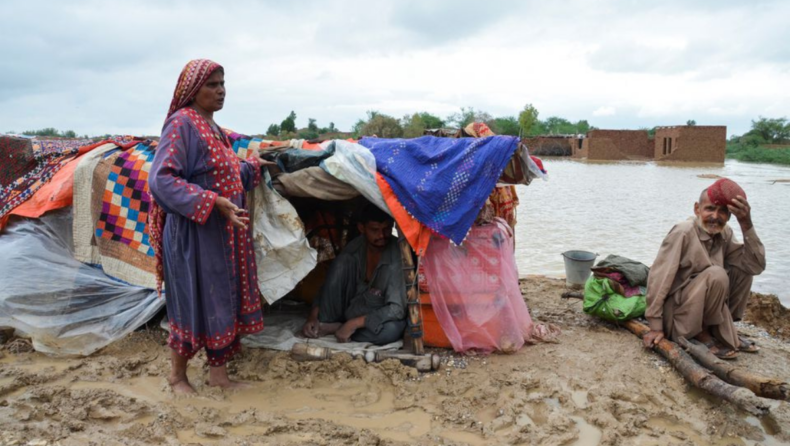The country’s climate change minister said on Thursday that the recent historic monsoon rains and flooding in Pakistan have had an impact on more than 30 million people, adding that the situation is a “climate-induced humanitarian calamity of epic proportions.”
As it tries to deal with the fallout from heavy rains that caused major floods and more than 900 fatalities last month, Pakistan has pleaded with the international community for assistance with relief operations.
Climate Change Minister Sherry Rehman texted Reuters, saying, “33 million have been affected, in different ways; the final homeless figure is being assessed”
She continued by saying that the southern state of Sindh, which has been severely impacted recently, has asked for 1 million tents for displaced people.
People are moving to higher land since the south of Pakistan is nearly completely submerged in water, she claimed.
This is not the responsibility of one country or one province; it is a calamity caused by climate change, she continued. “33 million have been affected, in different ways; the final homeless figure is being assessed.”
Separately, Ahsan Iqbal, the minister for planning and development, told Reuters that 30 million people have been impacted, which equates to around 15% of the population of the South Asian nation.
According to a report released on Thursday by the Office for the Coordination of Humanitarian Affairs (OCHA) of the United Nations, almost 3 million people in Pakistan were impacted by the monsoon rains, of whom 184,000 have been relocated to relief camps across the nation.
The financial difficulties Pakistan is facing will make funding and reconstruction activities difficult. Pakistan must reduce expenditure in order to get the International Monetary Fund to authorize the release of much-needed bailout funds.
In a study, the National Disaster Management Authority (NDMA) said that over 82,000 dwellings had suffered partial or total damage, and 150 kilometers of highways had been destroyed nationwide in the previous 24 hours.
According to the most recent status assessment from the NDMA, which was supported by the OHCA report, over 3,000 kilometers of roads, 130 bridges, and 495,000 dwellings have been destroyed since the start of the monsoon.













